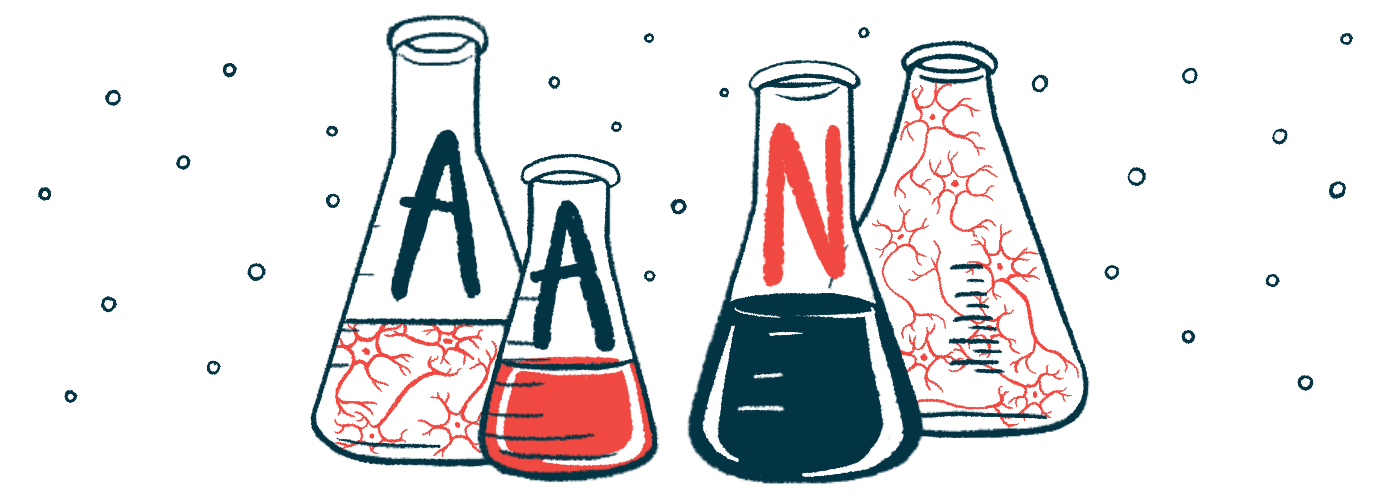#AAN2022 – Long-term Vyvgart Eases gMG Symptoms
Written by |

Long-term treatment with Vyvgart (efgartigimod alfa-fcab) is safe and well tolerated, and leads to a sustained improvement in generalized myasthenia gravis (gMG) disease scores.
These findings come from an interim analysis of ADAPT+ (NCT03770403), an ongoing Phase 3, open-label, three-year extension of ADAPT (NCT03669588) that is evaluating the long-term safety, tolerability, and effectiveness of intravenous (into the vein) Vyvgart in adults with generalized MG.
“Patients who participated in ADAPT+ continued to experience consistent efficacy and safety over a year of treatment, reinforcing the potential benefit this targeted therapy can offer to this community,” James F. Howard Jr, MD, who led the ADAPT+ study, said in a press release. Howard is a professor of neurology, medicine and allied health at the Department of Neurology, University of North Carolina at Chapel Hill School of Medicine.
“For healthcare providers treating gMG patients, the ADAPT+ results provide greater understanding of how long-term treatment with Vyvgart could help their patients overcome some of the daily limitations they face living with this debilitating disease,” Horward said.
Howard presented the findings in an oral presentation at the 2022 American Academy of Neurology (AAN), April 2–7 in Seattle and virtually on April 24–26. His presentation, “Long-term safety, tolerability, and efficacy of efgartigimod in patients with generalized myasthenia gravis: Interim results of the ADAPT+ study,” took place April 5.
In some patients with gMG, the immune system produces antibodies against the acetylcholine receptor (AChR), a protein on the surface of muscle cells that’s essential for nerve-muscle communication. This causes muscles to tire and weaken easily.
Vyvgart, a medication developed by Argenx, is approved in the U.S. and Japan for adults with gMG who are positive for anti-AChR antibodies. It works by blocking a protein called FcRn, which normally prevents antibodies circulating in the bloodstream from being degraded. By blocking FcRn, Vyvgart increases the rate at which these antibodies are broken down, lowering their levels in the body. This is expected to ease gMG symptoms.
Data from the placebo-controlled ADAPT study showed Vyvgart was able to reduce gMG symptoms, whether anti-AChR antibodies were present or not.
All patients who completed the ADAPT study were eligible to roll over into its extension, ADAPT+. Of the 167 patients, 151 (91%) chose to continue or start treatment in the ADAPT+ study.
At the time of the interim analysis, 139 (92%) of them, including 106 who were positive for anti-AChR antibodies, had received at least one dose of Vyvgart in ADAPT+. There were at least four weeks between cycles in the ADAPT+ study, with a maximum of 10 cycles. The mean study duration was 363 days, almost a year.
The efficacy analysis was based on the 106 patients who were positive for anti-AChR antibodies. Patients on Vyvgart demonstrated a consistent and clinically meaningful improvement on both the Myasthenia Gravis Activities of Daily Living (MG-ADL) and the Quantitative Myasthenia Gravis (QMG) scales for up to 10 treatment cycles.
Mean improvements on the MG-ADL and QMG scales (calculated based on five treatment cycles) were 5.1 and 4.7, respectively, and remained consistent between cycles. These improvements mirrored reductions in total immunoglobulin G (IgG) and anti-AChR antibody levels.
Similar findings were observed in the 33 patients who were negative for anti-AChR antibodies, confirming that Vyvgart is capable of easing gMG symptoms “regardless of antibody status,” the researchers wrote.
The safety profile of long-term treatment with Vyvgart was favorable and consistent with that of the ADAPT study.
“Despite being conducted during the COVID-19 pandemic, before vaccine availability, no new safety signals were identified,” the researchers wrote.
The most common side effects were headache, nasopharyngitis (inflammation of the nose and throat), and diarrhea, with most being mild to moderate in severity.
“The ADAPT+ data continue to strengthen our belief in the potential of Vyvgart to improve the lives of people impacted by gMG,” Luc Truyen, MD, PhD, chief medical officer of Argenx, said.
“Together with the robust clinical data already observed in the ADAPT study, these results further support the value of Vyvgart as an efficacious, well-tolerated targeted treatment option for a patient community that has been underserved for years. We are grateful for and humbled by the ongoing participation of patients, caregivers, and investigators in the clinical trial, all of whom make continued innovation possible,” Truyen said.
Note: The Myasthenia Gravis News team is providing coverage of the American Academy of Neurology 2022 Annual Meeting.




Leave a comment
Fill in the required fields to post. Your email address will not be published.